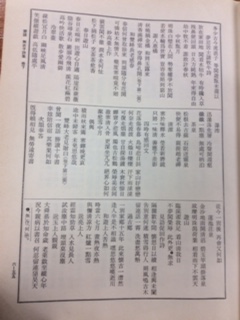(Translation) 無衣子詩集 "茶泉"
| Primary Source | ||
|---|---|---|
| [[파일:|700px]] | Title | |
| English | ||
| Chinese | 無衣子詩集 | |
| Korean(RR) | 건릉지첩 | |
| Text Details | ||
| Genre | Old Documents (文書) | |
| Type | 묘비문(墓碑文) | |
| Author(s) | 尹行恁 | |
| Year | 1800 | |
| Source | ||
| Key Concepts | 묘비문(墓碑文) | |
| Translation Info | ||
| Translator(s) | Participants of 2017 Summer Hanmun Workshop (Advanced Translation Group) | |
| Editor(s) | ||
| Year | 2017 | |
Introduction
National Master of True Enlightenment (眞覺國師) Hyesim (慧諶, 1178-1234), whose pen name is Muŭija (無衣子 [the unclothed]), was a Buddhist Sŏn monk during the Koryŏ dynasty (918-1392). He is known as the propagator of Sŏn (Ch'an in Chinese, Zen in Japanese) and the key word (話頭) emptiness (無) in Korea. Previously a Confucian scholar, he became Chinul's (知訥 1158-1210) [1] disciple and successor. His Sŏn philosophy is characterized by the syncretic approach of Buddhism, Taoism and Confucianism. The Muŭija sijip (無衣子詩集, Collection of Poetry by Muŭija) is renowned for its pioneering work of syncretism between literature and Sŏn philosophy.
[1] The philosophical founder of Korean Sŏn Buddhism.
Original Script
| Classical Chinese | English |
|---|---|
|
Spring Water for Tea The moss-grown pine roots are barely traced The eye on the rock spurts auspicious water It is still not easy to grasp cool comfort Voluntarily I take Master Zhàozhōu's Sŏn. Clean Water It is colder than unmelted ice Brighter than a glossily clean mirror One taste of emptiness, the constance That reflects myriad forms and colors |
- Discussion Questions:
1. What are the elements of Taoism and Confucianism in the poems?
2. What is the relationship between awakening and drinking tea?
3. How does Hyesim realize the realm of Sŏn by means of the clean water?
Further Readings
- ↑ 韓國佛敎全書 6: 55b4-6.
- ↑ This implies Master Zhàozhōu's (778-897, Tang dynasty) huàtóu (话头, critical word, key word) '喫茶去‘ (Just drink some tea and leave).
- ↑ 韓國佛敎全書 6: 55b7-9.
- ↑ One taste (一味) refers to the Buddhist idea that many different theories shores essentially one origin. the Flower Garland doctrine says: "One is in all; All is in one,"
